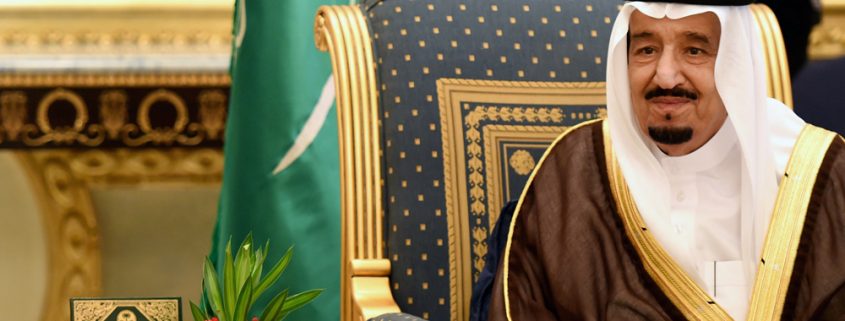Established Saudi state perks may prevent a recession and help their economy
Public Sector Wage Cuts
Last September, the government roughly diminished financial perks for employees in the public sector. It is the main source of incomes for Saudi people, because most of them work there. The goal was to curb a huge budget deficit caused by low oil prices.
Low Oil prices caused country to gain large budget deficit. Big supply all over the world caused low prices, which cropped Saudi Budget.
King Salman’s decided to retrieve cuts to financial allowances for civil servants and military workers. It is seen as his way to help country. As a way to avoid recession this year, and lead economy towards reforming paths.
On Saturday (22.04.), Riyadh has reversed a major severity policy since its budget crisis erupted two years ago. This followed widespread grumbling about musty living standards among ordinary Saudis.
Country budget is supposed to grow with this perks, and gain positive trends in following years. Such perks include housing, vacation, and sickness allowances plus monthly bonuses for some state and military workers.
Analyses of the step
- Analysts say the decision does not necessarily signal change in Riyadh’s determination to eliminate its deficit. Instead, it may be a tactical move designed to help authorities implement a controversial economic reform program announced last year by Deputy Crown Prince Mohammed bin Salman. (Reuters)

Program includes moves such as new taxes, domestic fuel price hikes. It implies transfer of big country’s projects to the private sector. And the smart sale of a stake in Saudi Aramco, which represents the Crown Jewel of Saudis economy.
“By showing it is sensitive to the public welfare and is looking for ways to share the financial benefits of reforms with society, the government may now be able to push ahead with its program.” (Reuters)
“The government was forced to take extreme measures last year. Now they are more at ease with the fiscal situation so they are able to give something back to society.”(R)
“They aim to continue the reforms, and they want to do it with society’s support.”(R)
Eliminating the Gap Caused by Low Oil Prices
Riyadh had made fast progress in cutting the deficit. It was much faster than expected. So, deputy Economy Minister Mohammed al-Tuwaijri said it would be possible to restore the allowances.
“The gap was 26 billion riyals in the first quarter of 2017, well below the government’s projection of 54 billion riyals.” Riyadh has forecast a deficit of 198 billion riyals in 2017 and aims to eliminate the gap by 2020. (Reuters)
Officials also have a goal to raise domestic fuel. Also the water prices in coming months, raising an additional 29 billion riyals. They plan a 5% tax on some products by the end of 2018.
That could be adequate for Saudi Arabia to avoid recession.
“A 1.4 percent rise in the Saudi stock index on Sunday, led by retailing companies, showed investors expect a boost to consumer spending.“ (Reuters)
Authorities said on Saturday that they intended to move forward with a part of the reform program that is popular among many ordinary Saudis: reducing corruption and making the government more transparent.
The officials said they also plan to conduct projects among ordinary Saudis. Which include reducing corruption, and making the government businesses more plainly to the ordinary people.
Changing Oil Prices
Oil sector represents a main income-area of the Saudi Arabia economy. Descending oil prices made a fiasco in their finances. There is a way to get over the county’s budget deficit, but the projects must be very precisely done. Transforming the government projects into private businesses and selling them is a good idea only if smartly led to an end. By the end of 2020 Riyadh is expected to get over the existing deficit, which means the oil market prices and the oil supply will have a serious issue in this matter. May the 25th will define most important following movements for Saudis. As well as for all the OPEC countries, and the worlds Oil Supply-Demand Issues.




Leave a Reply
Want to join the discussion?Feel free to contribute!